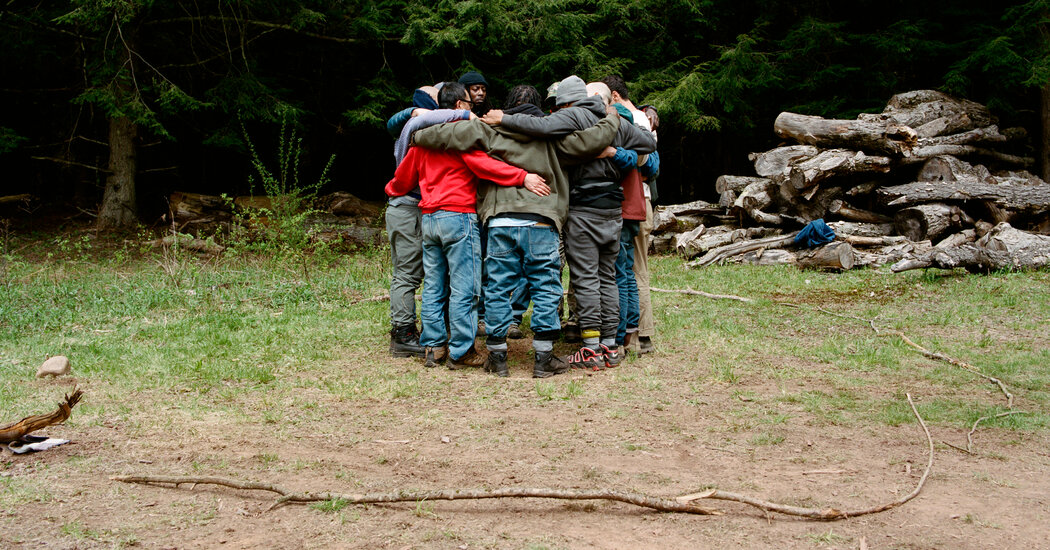
On a cloudy afternoon in May, a dozen strangers descended a tree-lined hill in the Catskills, one by one. They were nervous. They had just relinquished their phones, and the only sound they could hear was the distant beat of a drum.
They had little in common, at least on the surface. Among them was a wealth manager from Connecticut, a teenager from the Bronx trying to stay out of a gang, a painter from brownstone Brooklyn, a Haitian immigrant living in Queens and a community worker from St. Louis. They were Black, white and Asian, gay, bisexual and straight, middle-aged and young. Some had served time, while others had hardly ever gotten so much as a traffic ticket.
They had only a dim sense of what awaited them: three days of camping and talking about their lives. But they hoped that somehow they would emerge better, more fulfilled men.
At the bottom of the hill, they entered a huge frame tent, bare except for carpets, chairs and space heaters. A circle of about 25 more men, all of whom had already been through the same process, or a very similar one, welcomed them.
For the next several hours, each person in the circle explained why he had come. Some spoke of bad or absent fathers. Others opened up about molestation, divorce, estrangement from their children, professional disgrace, the cruelties of incarceration.
Dion Johnson, a rough voiced, thickly bearded 49-year-old from the South Bronx, recounted the traumas of his childhood. When he was 4, his mother received a 15 years to life sentence for killing her boyfriend in self-defense. His father was addicted to cocaine, and Mr. Johnson was raised by a grandmother and two aunts, who sent him to Westchester County private schools, where he said he faced racist abuse from classmates.






